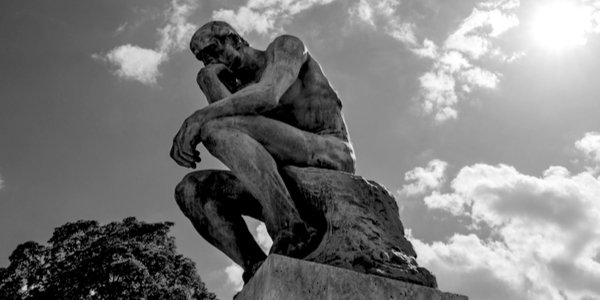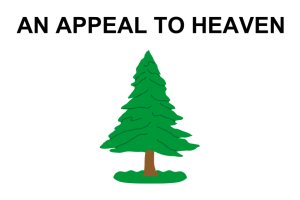WHEN Liz Truss was Foreign Secretary before her calamitous spell as Prime Minister, the Whitehall gossip was that senior civil servants compared their problems in briefing her on overseas policy to one of my favourite scenes in Father Ted.
In it, the title character is in a caravan in the middle of the countryside trying to explain perspective to his super-dim colleague Father Dougal. Using toy models of cows, he says, very slowly: ‘OK, one last time. These are small, but the ones out there are far away. SMALL . . . FAR AWAY.’ Poor old Dougal still can’t get his little head round the concept and an exasperated Ted throws down the miniature cattle saying: ‘Ah, forget it!’
Father Ted, which was named by a Radio Times panel of comedy experts as the second-greatest British sitcom (after Fawlty Towers*), ran between 1995 and 1998. It is set on the fictional Craggy Island, off western Ireland. The main characters are Father Ted Crilly, played by Dermot Morgan, Father Dougal McGuire (Ardal O’Hanlon), Father Jack Hackett (Frank Kelly) and their housekeeper Mrs Doyle (Pauline McGlynn).
The priests have been banished from the mainland by their superior, Bishop Brennan, as punishment for a variety of misdeeds. Ted’s involved financial jiggery pokery (the money was only resting in my account!) which led to a child being denied a visit to Lourdes while the priest was cavorting in the casinos of Las Vegas.
Dougal’s downfall is referred to only as ‘the Blackrock Incident’, which led to ‘many nuns’ lives being irreparably damaged’. Jack’s exile was a result of his alcoholism and womanising, culminating in an unspecified scandal at a wedding in Athlone.
Ted and Dougal have many adventures over the show’s 25 episodes, while Jack is mainly confined to his wheelchair, where he shouts: ‘Feck!’ ‘Arse!’ and ‘Drink!’ When the others wish to move him, they dangle a bottle of whiskey on a string in front of him and he turns the wheels in a frantic battle to catch up with it.
The programme was devised by a pair of comic geniuses, Graham Linehan and Arthur Mathews, who met while working at the Dublin music and politics magazine Hot Press. Linehan was straight from school while Mathews, eight years his senior, was involved in a satirical tribute band, the Joshua Three, who pricked the pomposity of the rock group U2. As part of the show, he would appear on stage as Father Ted and tell jokes about his friend Father Dougal.
At the end of the 1980s Linehan moved to London to work in the comedy scene and in 1991 Mathews followed him, moving into his house. They wrote for The Fast Show and The All New Alexei Sayle Show while working on ideas for their own series. These included Irish Lives, with six episodes each featuring a different character. One of these was Father Ted, and this worked out so well that producer Geoffrey Perkins suggested building a sitcom around him.
Linehan and Mathews were both heavily influenced by America’s The Simpsons, Seinfeld and Cheers. The latter’s naïve barman Woody Boyd was the inspiration for Dougal, as the writers admitted in a Channel 4 documentary Father Ted: Unintelligent Design.
In 1994, with work going ahead on Father Ted, the two men were interviewed by Damian Corless, who had introduced the pair on Hot Press. They described Ted as ‘basically a nice man’, Dougal as ‘nice but really stupid’ and Jack as ‘a hideous creature’. Linehan said: ‘They’ve all been sent to this isolated place called Craggy Island because they’re crap priests.’ Mathews added: ‘They’ve each a terrible secret which is why they’ve been banished to this place, and the terrible thing is that they can’t get away from each other. Obviously it’s not entirely reality-based.’ Mathews was nominated to play Ted himself, but decided his acting wasn’t up to snuff so the role went to Morgan.
The show was optioned by Channel 4 via the UK company Hat Trick Productions and was a huge popular and critical success, making stars of its main characters plus guest actors including Graham Norton. Here are some of the best bits.
In the mid-90s, my wife Margaret and I were working on a CD-rom to mark 100 years of the Daily Mail and we came across a story about an Irish priest who married the wrong couple. We thought this would make a great idea for Father Ted and Margaret wrote to Linehan suggesting this. She got a lovely hand-written reply by return of post saying they would bear it in mind.
Following three series plus a Christmas special, however, Morgan announced his retirement as Ted saying he refused to be typecast. ‘I don’t want to be the next Clive Dunn and end up playing the same character for years.’ A day after the final episode was completed, he died of a heart attack aged 45.
Linehan and Mathews went on to create several more comedies, including Big Train, Black Books and The IT Crowd, with one episode of the latter proving a life-changer for Graham. It features a man who learns that his girlfriend is transgender and has a fight with her. There were predictable howls of criticism, accusing Linehan of being transphobic, reinforcing sexual stereotypes and trivialising violence against transgender women. He refused to apologise for what he saw as a ‘harmless’ joke.
He went on to question gender self-identification, criticising ‘privileged white people saying you must accept anyone who says they are a woman’. He said that ‘anyone suffering from gender dysphoria needs to be helped and supported’, but voiced concern over early transgender intervention for children.
In a 2018 interview, he said: ‘I’m now in a position where I can answer the question honestly of, if you were around at the time of something terrible happening like Nazism, or whatever it happened to be, would you be one of the people who said “no, this is wrong”, despite being opposed?’ He said the trans movement provided ‘cover for fetishists, con-men and simply abusive misogynists’. And on Newsnight in 2020, he compared the Tavistock Centre’s practice of treating youngsters with puberty blockers to Nazi eugenics and experiments on children.
Of course there was a price to pay for talking sense. Well-advanced plans for Father Ted – the Musical were abruptly ditched, Linehan’s Twitter account was cancelled and he found himself an outcast. The father of two, who is in his mid-50s, said the issue had destroyed his career and his marriage. In an interview last year he said: ‘Every comedian at the moment is living under a kind of state of permanent blackmail. There’s a few hot-button issues where you have to follow a certain line and if you don’t, you’ll be destroyed.’ Later Linehan said that his anti-trans stance had led him to question the safety of Covid jabs and the scientific consensus on climate change ‘because I’ve been lied to so conclusively by all the people I used to trust’. Hear, hear to that.
There is a heart-warming programme from 2015, Small, Far Away – The World of Father Ted which illustrates what kind and gentle chaps Linehan and Mathews are, and how their characters and stories reflect that. And you’ll not see anything funnier, so you won’t.
*Is there anyone, apart from 83-year-old John Cleese and his daughter Camilla, who thinks it would be a good idea to make a 21st century version of Fawlty Towers?
Old jokes’ home
I first heard this at junior school.
Man goes into a butcher’s and says: ‘Can I have a pound of kidleys?’ ‘Don’t you mean kidneys?’ ‘I said kidleys, diddle I?’
A PS from PG
There entered a young man of great height but lacking the width of shoulder and ruggedness of limb which make height impressive. Nature, stretching Horace Davenport out, had forgotten to stretch him sideways, and one could have pictured Euclid, had they met, nudging a friend and saying: ‘Don’t look now, but this chap coming along illustrates exactly what I was telling you about a straight line having length without breadth.’
PG Wodehouse: Uncle Fred in the Springtime











